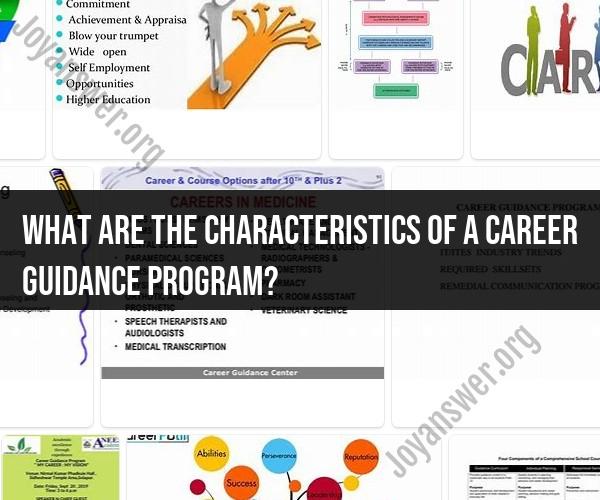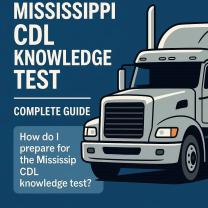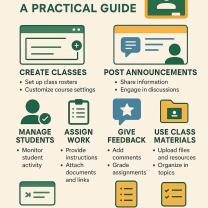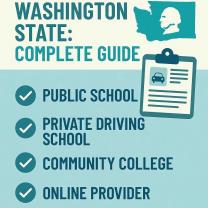What are the characteristics of a career guidance program?
A well-designed career guidance program plays a pivotal role in assisting individuals in making informed decisions about their future career paths. This article delves into the essential characteristics that define an effective career guidance program, helping individuals embark on their journeys with confidence and clarity.
Introduction to Career Guidance Programs
Career guidance programs offer support to individuals at various stages of their lives, helping them identify their strengths, interests, and aspirations while aligning them with suitable career options.
The Significance of Effective Career Guidance
An effective career guidance program is essential due to:
1. Informed Decision-Making
It empowers individuals to make informed decisions about their education, training, and career paths based on a clear understanding of their preferences and capabilities.
2. Reduced Uncertainty
It reduces the uncertainty and anxiety associated with career choices by providing valuable insights and information.
3. Enhanced Confidence
Individuals with a well-rounded understanding of their options are more confident in pursuing their chosen careers.
Key Characteristics of an Effective Career Guidance Program
1. Comprehensive Assessment
A robust program involves thorough assessments of an individual's interests, strengths, values, and personality traits.
2. Individualized Approach
Personalized guidance that considers each individual's unique aspirations and circumstances leads to more tailored career recommendations.
3. Exposure to Options
An effective program exposes individuals to a wide range of career options, including emerging fields, to broaden their perspectives.
4. Information Accessibility
Providing easy access to accurate and up-to-date information about careers, education paths, and job markets is crucial.
5. Collaboration with Professionals
Engaging with industry professionals, mentors, and alumni offers valuable insights and real-world perspectives.
6. Skill Development
Integrating skill development workshops and training enhances an individual's readiness for their chosen career.
7. Continuous Support
An effective program provides ongoing support to adapt to changing career trends and personal growth.
Benefits of Effective Career Guidance
1. Empowered Decision-Making
Individuals can confidently make decisions aligned with their strengths and passions.
2. Reduced Misalignment
Efficient career guidance minimizes the risk of individuals pursuing careers that are not suitable for their skills and interests.
3. Greater Satisfaction
Individuals who make informed career choices are more likely to find fulfillment in their chosen paths.
Conclusion
An effective career guidance program is an investment in personal and professional success. By offering comprehensive assessment, individualized attention, exposure to various options, and continuous support, such programs equip individuals with the knowledge and confidence to navigate the ever-evolving world of careers. Nurturing futures through effective career guidance ensures that individuals are well-prepared to pursue meaningful and rewarding career paths.












